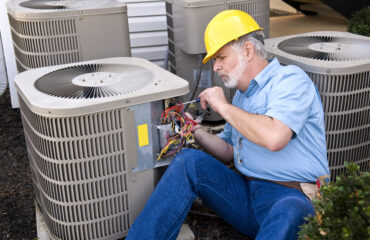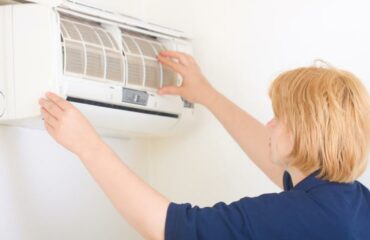
Nothing in a home can affect comfort as much as the HVAC system. Yet unless it requires repairs, most homeowners pretty much ignore their HVAC equipment. When not properly maintained, even the most expensiveHVAC system can cost tons of money and wasted energy. Problems like sooty flues, dirty thermostat, leaky ductwork, unlubricated fan motors, and clogged filters equate to a poor HVAC performance and reduced efficiency.
While some maintenance work require skills of a professional HVAC company, some are relatively simple. Here are several tips to ensure that your HVAC system performs its maximum capacity for a longer period of time.
Tip #1: Regularly Check the Air Vents
Mold is such a menace, especially when it finds its way to your system. To prevent mold growth, keep an eye on your system’s air vents.
Tip #2: Change the Filters
HVAC filters must be replaced every 6 months or less so that it won’t accumulate so much dirt. Inspect your system’s filters every few months to determine whether or not they need replacing.
Tip #3: Clean the Condenser and Evaporator Coils
Once or twice each year, clean the unit’s coils. Since they are constantly damp and is in contact with dirt and outside air, mold can build up in evaporator coils. On the other hand, leaving the condenser coil dirty causes it to degrade rapidly. Clean the HVAC coils for improved energy efficiency.
Tip #4: Examine the Belts, Bearings, and Fan
Inspecting these parts twice a year may prevent unnecessary repairs in the future. Include this in your preventive-maintenance plan. Even though you do not see any problem with the air flow, checking the fan would help you determine if its motor is running backwards.
If you discover that the bearing cassette is not functioning properly, just replace it right away. You’ll know when the self-lubricating bearings are failing if you notice vibration, noise, or heat coming from it. Also, check if the greased ball bearings are over-greased or under-greased. Either way can damage the system, so its best to correct them immediately.
Lastly, you should make sure the belts are aligned properly to prevent wear. When a belt is loose it can slip on the pulley and cause wear and torque loss. And when the belt is too tight, it can cause failure to the system’s motor.
Tip #5: Repair Cabinet and Supply Duct Leaks
High pressure can cause cracks to your cabinet and duct. Your preventive maintenance plan should include an annual check up on the ductwork for leaks, parts replacements, and gasket patching. If the duct or cabinet needs fixing, contact a reliable HVAC company to handle it.
If you’d rather a professional HVAC company do the maintenance, then schedule service calls with one of the HVAC companies in your area. For a more flexible schedule, it’s wise to call the HVAC company before the beginning of the heating or cooling season.



